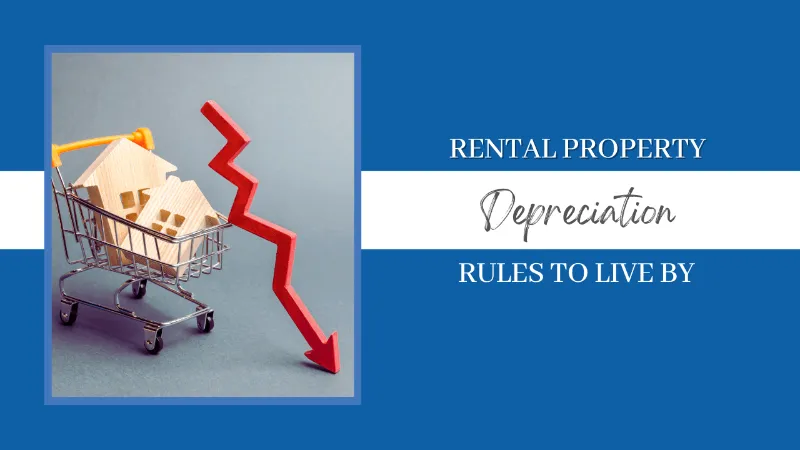
As a real estate investor, it’s crucial to know everything you can about rental property depreciation, especially since it can help save money on taxes.
Depreciation can reduce your taxable income and, in turn, your overall tax burden. However, it’s easy to misunderstand, and it comes with some pretty sticky rules and regulations. We want to help you leverage rental property depreciation to ensure the maximum tax benefits for your rental property investments.
Here are some of the best rental property depreciation rules to live by for real estate investors.
Understand the Depreciation Timeline
The first thing you need to know about rental property depreciation is its timeline.
The IRS allows the depreciation of your residential rental property over 27.5 years. You can also depreciate any capital improvements made to the property, such as flooring, a new roof, or new appliances, over their useful life.
Something important to remember is this: land cannot be depreciated, only the structure.
Keep Up with Maintenance and Repairs
Keeping up with maintenance and repairs is essential to ensure that your rental property remains livable and safe. It also has a direct effect on depreciation. If you ignore maintenance or repairs, you can shorten the useful life of the parts or assets depreciated.
Ensure that you keep all invoices and receipts for repairs and maintenance as they can be deducted from your taxes. Make maintenance a priority as a real estate investor.
Learn How to Use Bonus Depreciation
Bonus depreciation allows real estate investors to deduct a substantial amount of an asset’s cost in the year it was purchased, rather than waiting to depreciate the asset over its useful life.
For example, you can use bonus depreciation for significant renovations on apartment complexes or the purchase of new appliances. The 2021 Consolidated Appropriations Act includes favorable bonus depreciation rules for certain assets such as Qualified Improvement Property, making bonus depreciation an even better option for real estate investors.
Differences Between Residential and Commercial Property Depreciation
The depreciation method for residential and commercial properties is slightly different. Residential properties are depreciated over 27.5 years, while commercial properties are depreciated over 39 years. Commercial property owners can also use a bonus depreciation option for “qualified improvement property,” which allows them to deduct 100% of the cost of improvements in the first year.
Hire a Professional to Help You

A local property manager can also help. We are not accounting professionals, but we do work with investors all the time to maximize what they’re able to save at tax time. We’d be happy to tell you more about what we know.
Rental property depreciation rules can significantly improve your bottom line and reduce your tax burden. Understanding how depreciation works can give you a competitive edge and help you make wise investment decisions.
Let’s continue this conversation. Contact us at PURE Property Management of Arizona.
